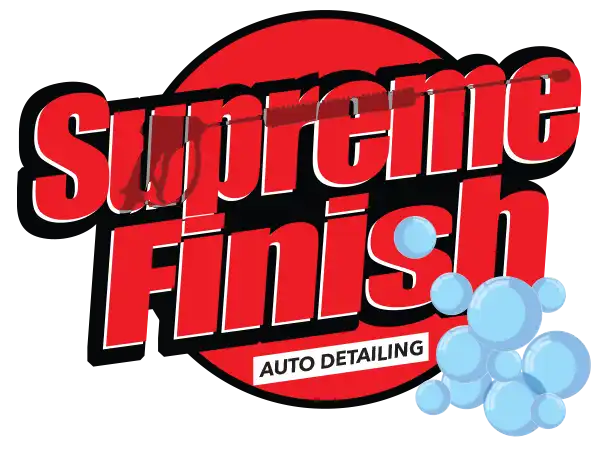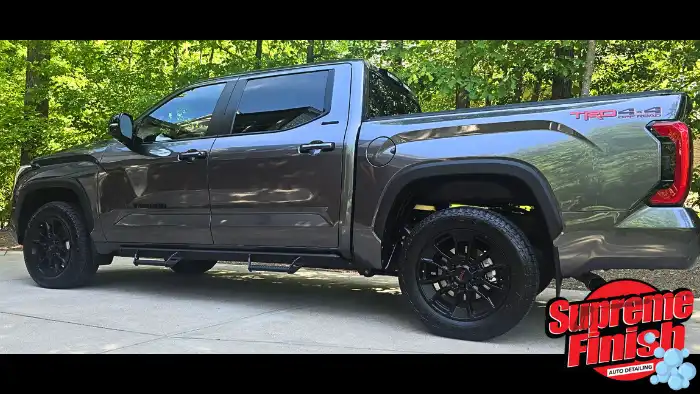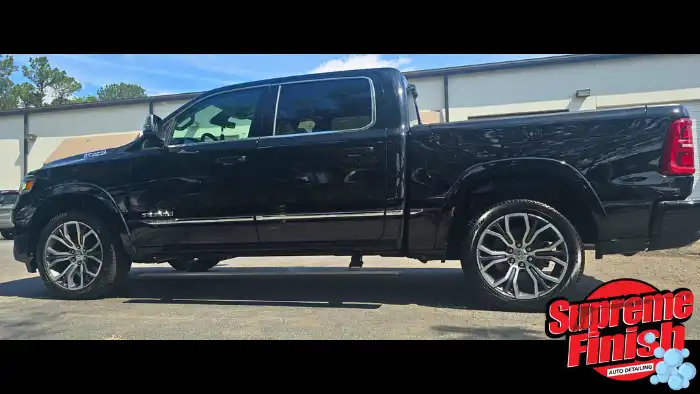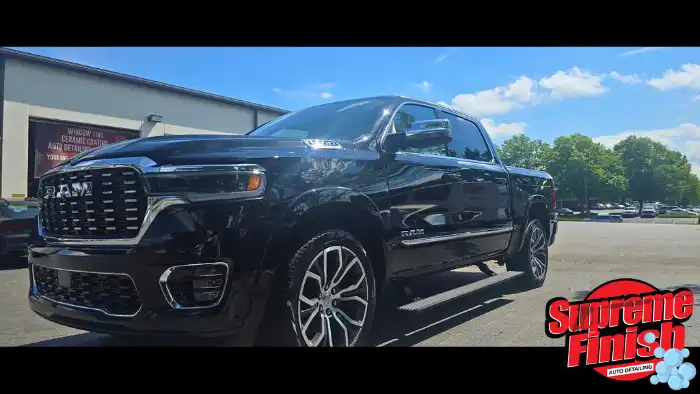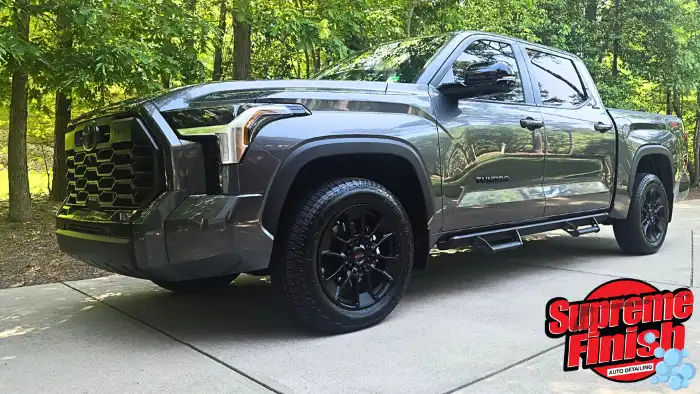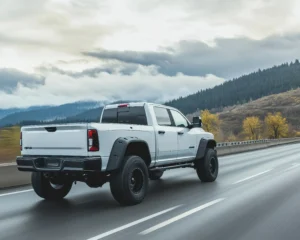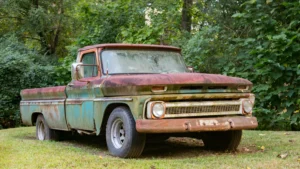Own a Pickup Truck? Protect Your Truck From Rust!
North Carolina is a great state for owning a pickup—until you look underneath the frame rails. From coastal salt spray to muggy Piedmont summers and red-clay work sites, our climate serves up the perfect recipe for corrosion.
The real sleeper threat, though, is magnesium-chloride dust. Used both as a winter road brine and as a dust suppressant on job-site access roads, “mag-chloride” clings to metal, draws moisture from the air, and keeps feeding rust long after you’ve parked the truck in a dry garage.
Unlike the rust you may remember from older road-salt battles up north, magnesium chloride creates a sticky, almost syrup-like residue. It seeps into seams, frame welds, and boxed rails—reactivating every time humidity climbs above 30 percent (which is most of the year in the Carolinas).
Left unchecked, the chemical accelerates pitting, weakens suspension mounts, and even eats through brake lines far faster than traditional rock salt ever did.
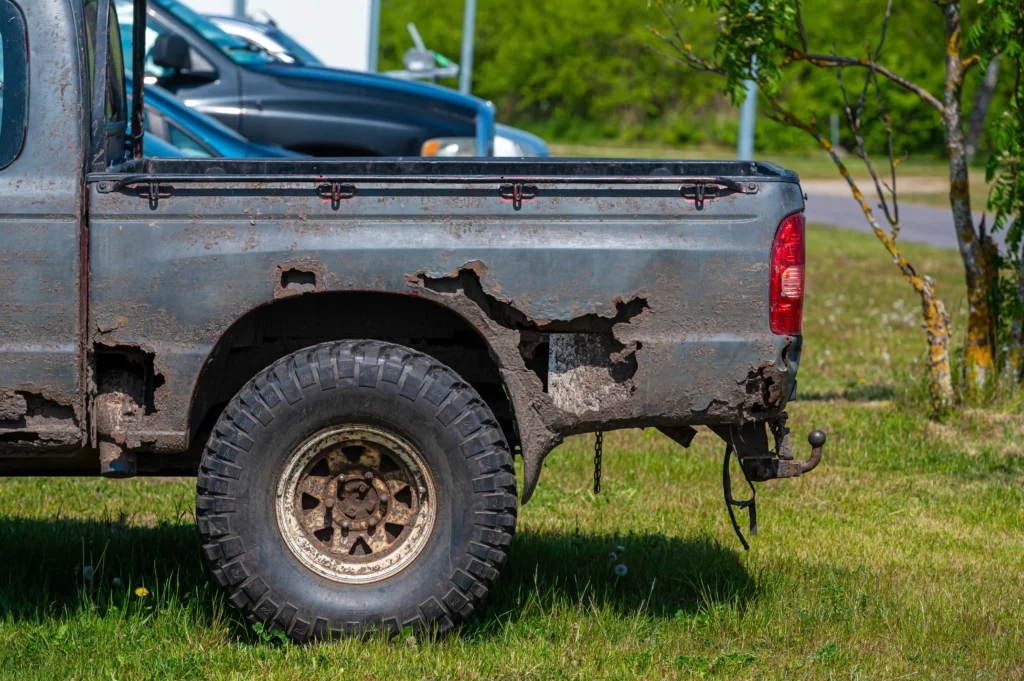
The good news is that you can stay ahead of the problem with a smart, North Carolina-specific rust-prevention plan. In the sections that follow, we’ll explain exactly how magnesium-chloride dust attacks your pickup, outline the underbody coatings that actually work here, and share five easy habits—like targeted pressure washing and yearly inspections—that keep your truck’s frame solid for the long haul.
What Causes Rust on Your Pickup?
Rust is basically iron + oxygen + water—which means any time bare steel comes in contact with moisture and air, corrosion can start. In North Carolina, that simple recipe gets turbo-charged by a handful of local factors:
Magnesium-chloride brine and dust
Unlike old-school rock salt, mag-chloride is hygroscopic—it actively pulls moisture from the air. That keeps metal surfaces damp even on days that look dry, so the oxidation reaction never really pauses. Because the brine is sticky, it also glues road grit to suspension parts and frame rails, trapping more moisture and speeding up pitting.
High humidity and swingy temps
Most of the state sits above 70 % relative humidity for large chunks of spring, summer, and fall. Humid air provides the water molecules rust needs, while warm afternoons and cooler nights drive condensation onto metal surfaces, kicking off fresh corrosion cycles every 24 hours.
Red-clay road debris
Fine clay dust sticks to every nook of the undercarriage. When mixed with mag-chloride, it forms a paste that holds salty moisture tight against steel—especially inside boxed frame rails where you’ll never see it until flaking starts.
Electrolyte-rich puddles
Coastal salt spray, brackish river crossings, and the brine “slush” left after winter storms all create miniature batteries under your truck. The dissolved salts carry electrons between different metals (steel frame, galvanized mounts, aluminum body panels), accelerating galvanic corrosion.
Micro-damage from gravel and job-site debris
Every rock chip or scrape breaks your paint and exposes fresh metal. Once mag-chloride finds raw steel, rust spiders out under the remaining paint film and lifts it like a blister.
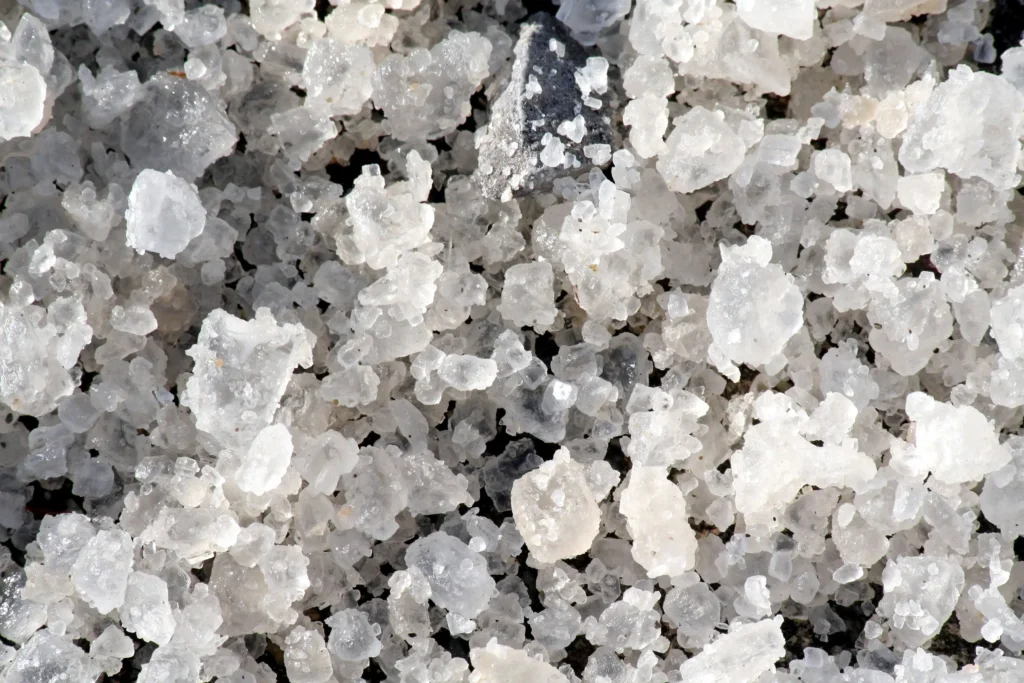
Magnesium-Chloride: The Hidden Culprit
Magnesium-chloride (MgCl₂) is North Carolina’s go-to chemical for both winter de-icing and dust control on construction access roads. It works because the salt is hygroscopic—it absorbs water out of thin air—so it keeps roads damp and ice-free at lower temperatures than ordinary rock salt.
Sticks Like Syrup
Sticks like syrup. Unlike dry road salt that can bounce away, mag-chloride is applied as a liquid brine. It splashes up into frame rails and cross-members, then dries into a sticky film that bonds road grit to bare steel.
Speeds Up Electro-Chemical Reactions
In solution, MgCl₂ splits into magnesium and chloride ions. Chloride ions are highly reactive with iron, stripping away protective oxides and allowing oxygen to reach fresh steel faster than normal.
Re-Activates With Humidity
Even after it looks dry, a humid North Carolina evening can rehydrate the salt crust, kick-starting corrosion cycles overnight while your truck sits in the driveway.
Keeps Itself Wet
Because the residue constantly pulls moisture from the air, it creates an almost permanent damp layer on the metal surface—even inside enclosed frame sections you can’t rinse easily.
Creeps Into Seams
The liquid brine wicks between overlapped panels and weld joints by capillary action. Once there, it’s nearly impossible to flush out without a high-pressure lance or complete disassembly.
Triggers Galvanic Corrosion
Aluminum body panels or suspension parts bolted to a steel frame become conductive partners; chloride ions act like an electrolyte, so both metals corrode at an accelerated rate.
Rust-Prevention Steps for North Carolina Truck Owners
High-Pressure Undercarriage Washes
High-pressure undercarriage washes after every storm or job-site visit Salt brine and mag-chloride dust love tight spaces. A lift-bay wash with a 3,000-psi wand can blast residue out of frame rails, cross-members, and spring perches—places a drive-through wash never touches.
Clear Drain Holes & Weep Tubes
Factory drain slots in rocker panels and boxed frames clog with red clay. Use compressed air or a plastic trim tool at every oil change to keep moisture from pooling inside sealed cavities.
Choose the Right Underbody Coating
Rubberized asphalt works for paved-road commuters, an oil-based film creeps into seams on older trucks, and a hard polyurea shell shrugs off gravel impacts. The right product depends on how—and where—you use your pickup.
Add Paint-Protection Film (PPF) to Impact Zones
Chip-free rocker panels, cab corners, and fender lips mean fewer bare-metal spots where rust can start. PPF also makes seasonal clay removal easier because dirt can’t bite into the clear urethane layer.
Book an Annual Rust Inspection & Touch-Up
A pro with a lift can spot spreading seam rust, chafed brake lines, or chipped coatings long before they turn into frame rot. Catching issues early almost always costs hundreds, not thousands, to fix.
Schedule Your Appointment
Supreme Finish can help you protect your truck from Rust in North Carolina!
📍 Supreme Finish Auto Detailing
3125 Gresham Lake Road, Raleigh, NC 27615
📞 Call us at: (919) 794-7261
🔗 Get a quote today: Click Here
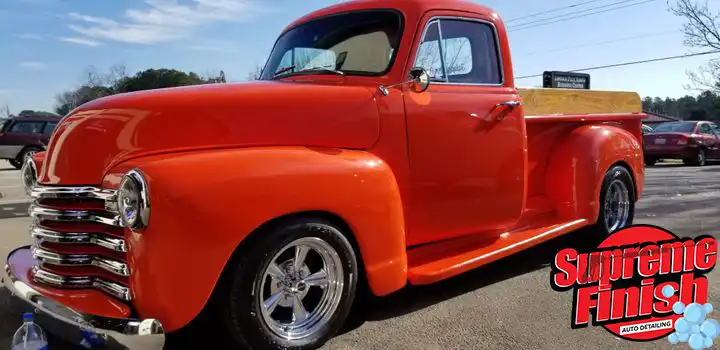
FAQs on Rust Prevention for Pickup Trucks in North Carolina
It depends on how you use your pickup:
- Daily paved-road driving—rubberized asphalt offers affordable noise damping.
- Older trucks with existing surface rust—an oil-based film creeps into seams and self-heals.
- Off-road or heavy work use—a hard polyurea or polyurethane shell resists gravel impacts for a decade or more.
PPF shields rocker panels, cab corners, and fender lips from rock chips—the spots where bare metal first becomes exposed. While it doesn’t protect the entire frame, stopping chip damage in high-impact zones blocks one of the main entry points for corrosion.
Look for bubbling paint near chip sites, orange streaks at weld seams, or flaking scale on frame rails. A yearly lift-bay inspection is the surest way to spot early corrosion on hidden surfaces before it becomes structural.
